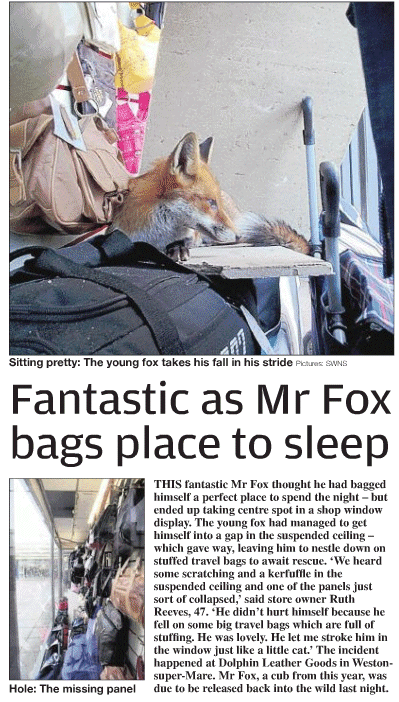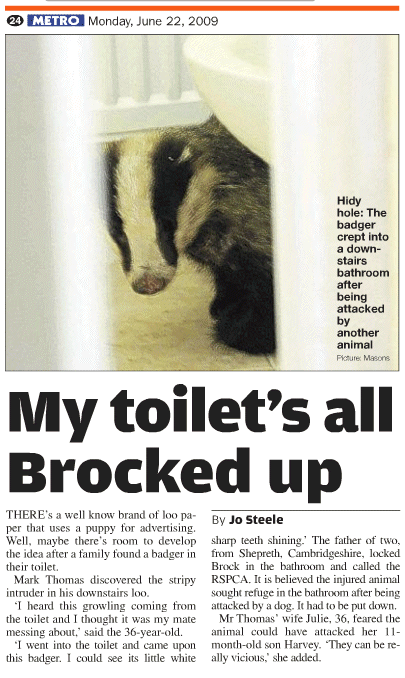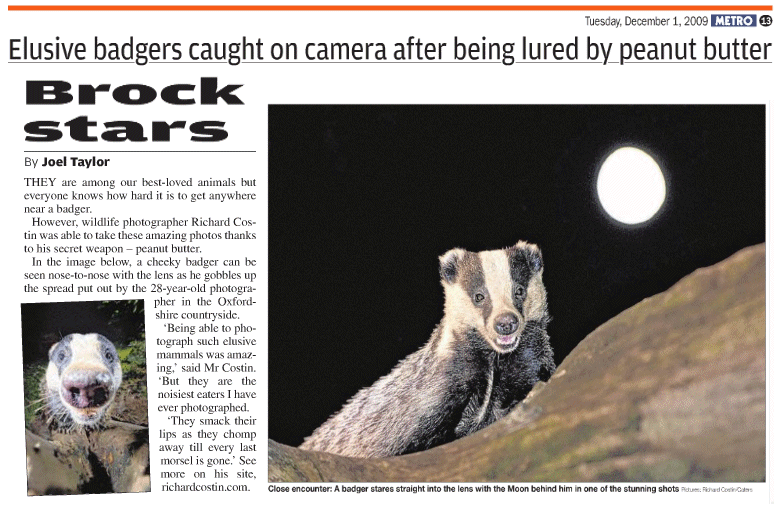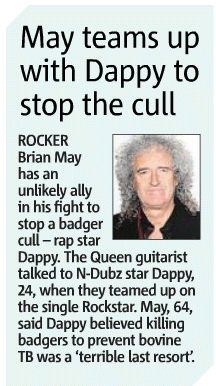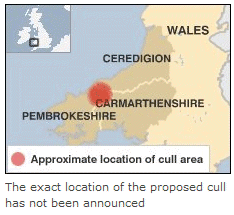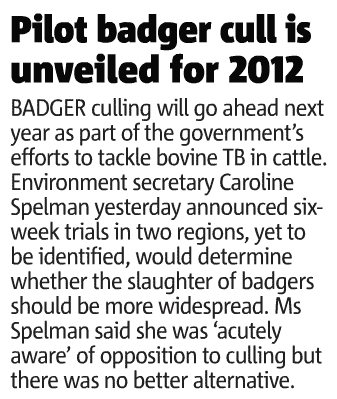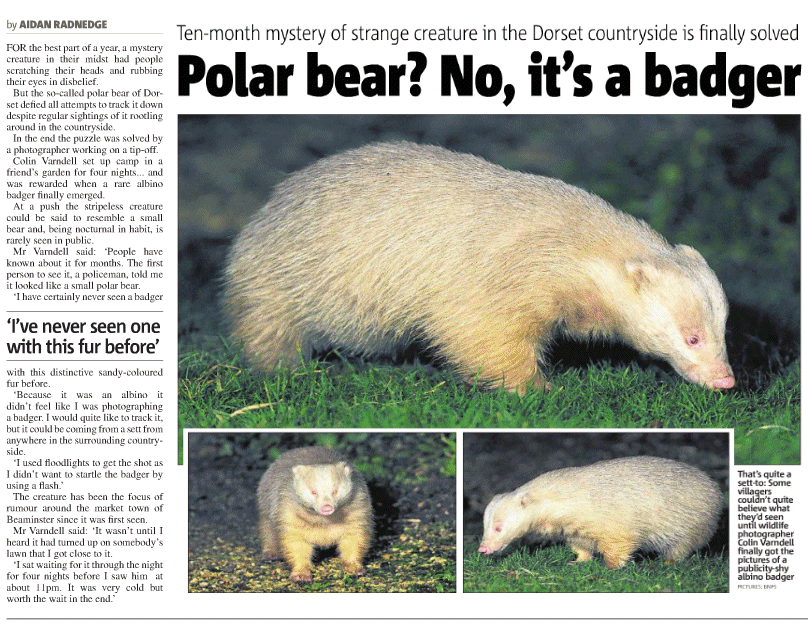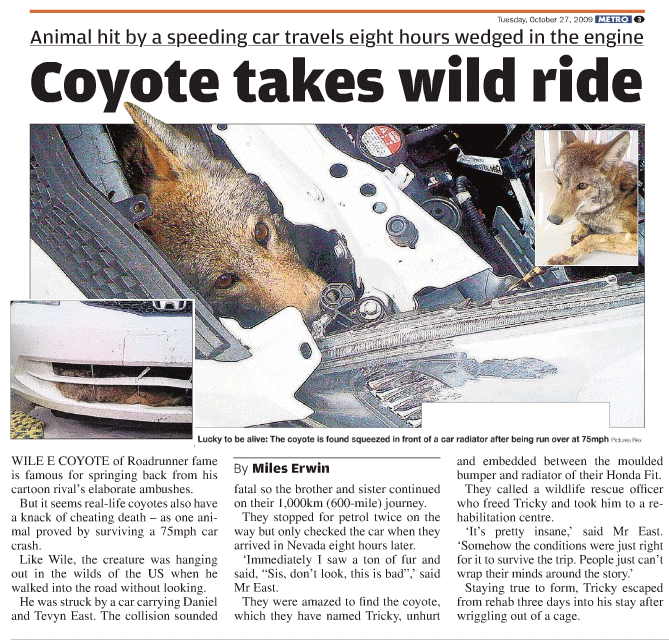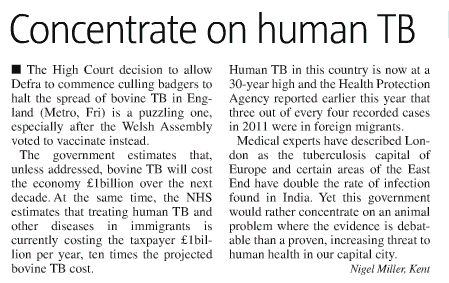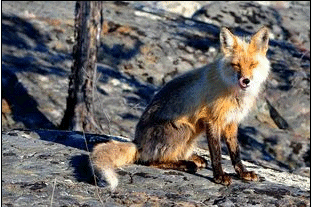NEWS
Here comes the hunt, in landrovers
Foxes survive even hunting
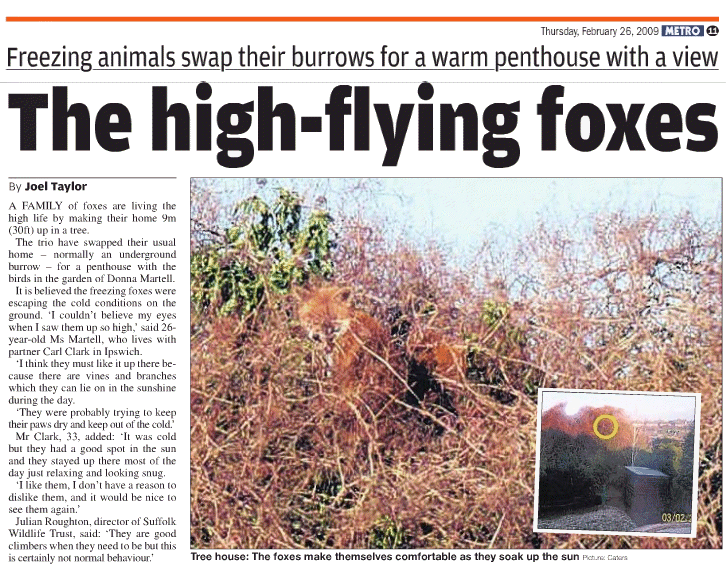
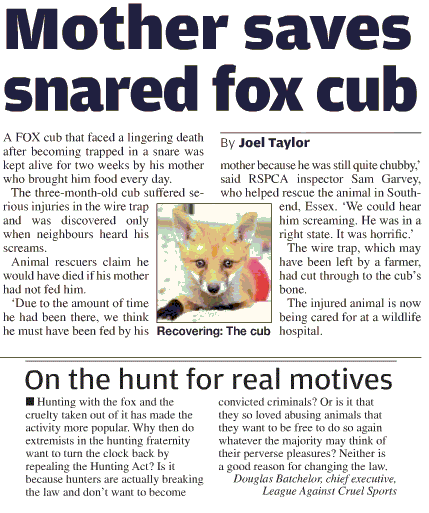
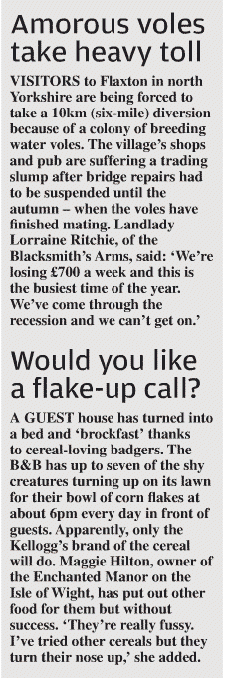 |
Pembrokeshire badger cull order may be amended |
|||
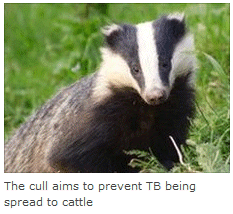
The Badger Trust questioned why the order related to the whole of Wales, rather than just the cull pilot area in part of south-west Wales. Rural affairs minister Elin Jones said the all-Wales clause was only included in case a cull or vaccination was needed elsewhere in future. She is expected to offer to amend the order to include only the pilot area. The Badger Trust had appealed against the assembly government plans to cull badgers as part of a raft of measures to stop TB being spread in cattle.
The trust disputes a cull would make any difference to the spread of bovine
TB. It argued at the Court of Appeal that the assembly government and the minister had not shown that a cull would "eliminate or substantially reduce" the rate of TB infection. The trust also said ministers had a duty to weigh the harm to the badger population against the possible benefits to farmers, but had not done so. Lord Justice Pill also suggested the Badger Trust could offer a third ground to oppose the cull. That was in relation to the eradication order relating to the whole of Wales, rather than just the pilot area of north Pembrokeshire and a small part of Carmarthenshire and Ceredigion. The exact location of the proposed cull has not been announced Rural affairs minister Elin Jones said on Monday the assembly government had "agreed to address this third ground of appeal in order to satisfy the court". She said: "We have evidence that there is a bovine TB reservoir in badgers in TB endemic areas in Wales. "I have also said repeatedly that there are no circumstances in which we would cull badgers across Wales in areas where there is no evidence that there is a bovine TB reservoir in wildlife. "Therefore we have agreed to address this third ground of appeal in order to satisfy the court. "We await the court's judgement on grounds one and two and we remain committed to fully implementing our TB eradication programme. "In relation to the removal of badgers all contractual arrangements are in place, as we were prepared to begin the work next week subject to the decision of the Court of Appeal.
'Sense has
prevailed' "While we consider our next steps and the views of the Court of Appeal, our contractors will remain in a position where they are ready to begin the work as soon as this is possible." She said the assembly government would continue to work with the communities affected to "address any concerns and to answer any questions that may arise in relation to the TB eradication programme".
At least 1,500 badgers could be killed during the five-year
programme. The result of the appeal against the outcome of the judicial review is expected next week. The Badger Trust's solicitor, Gwendolen Morgan of Bindmans LLP, said: "The key issue here is that the proposed badger cull is stopped in its tracks. The Badger Trust is pleased that sense has prevailed. "Whilst we await the Court of Appeal's reasoned judgment, we are pleased that the court commented on the importance of protecting badgers in the course of the appeal hearing last week. Overall, it is a good day for badgers."
DEFRA Bovine TB Statement
|
| Dear DEFRA,
With respect to the Badger Trust opposition to culls in Gloucestershire and Somerset (attached) the judge ruled in favour of culls. Is he along with DEFRA not aware of the data shown in the Wildlife trust pamphlet showing that culls have the opposite effect to the desired one? http://www.medlockandtame.org.uk/natnum2.html (bottom of page)...? Quite apart from the ethical and moral issues of killing wild animals - if you study the dynamics of the paper on that page what it shows is that culling is ineffective.The Wildlife Trusts own figures bear out the model and show that any cull is very far from just - it is wantonly stupid and ignorant. If that is how policy is to be made on such matters,perhaps we ought to have a cull of judges,since they clearly are spreading ignorance. DL Borrell |
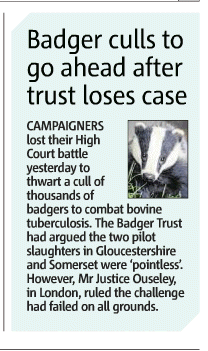 |
|
Fly cat fly |
Brake sabotage spree leaves drivers foxed
You get in your car to go to work in the morning, pull away and discover that you've lost stopping power. Thankfully you can still stop safely, but you later discover that your brake pipes have been cut. That's sinister enough, but you then find that you're not the only victim in the area. Is some lunatic on a potentially murderous crime wave? That sounds like something from a cheesy crime novel, but it actually happened to the residents of West Wickham, Kent, when over a seven-month period from February a total of eight cars had their brake lines cut. Yet the Police couldn't find a scrap of evidence to point toward the perpetrator. The reason? It was a fox. When biological Scientist Professor Stephen Harris from the University of Bristol got involved, he knew "within seconds" that the animal was culpable. He said: "if a cable is cut with a knife it is very distinctive. Foxes leave pressure marks where their teeth go in to the plastic - there is no neat cut." In a strange way that provided relief for the residents, who were at least assured that there wasn't "some nutter running around," as 66-year-old Bill Stenlake puts it. It's believed that the fox (or pack of them - that's not clear yet) had developed a taste for the brake fluid, which is deadly to humans if consumed but apparently sweet as honey to foxes. The Police have advised the residents to check their brakes every time they pull away from home now. |
